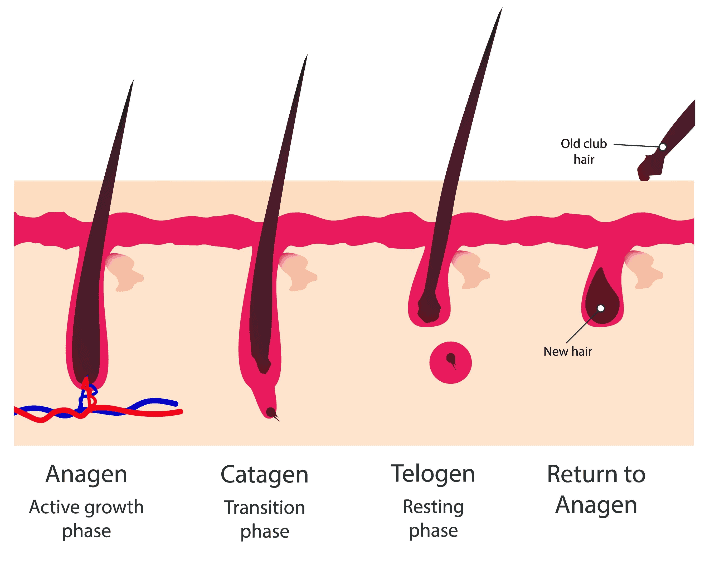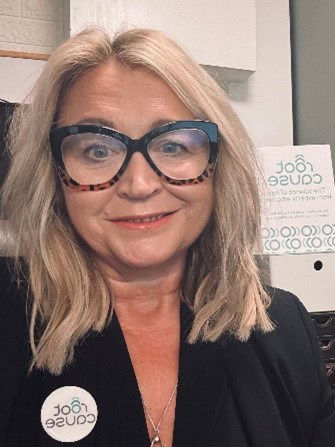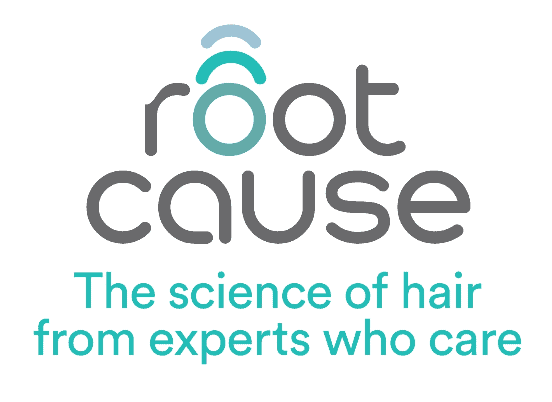The Powerful Connection Between Hormones And Hair Follicles
12.10.24
Our trichologist Mandy discusses hair and hormones offering an overview on how hormones play a role in your hair health.
Your hair tells a story—of growth, health, and sometimes struggle. Beneath the surface of every strand lies a fascinating process driven by hormones. These chemical messengers influence everything from the texture and thickness of your hair to its ability to grow and regenerate.
If you’ve ever wondered why your hair changes during puberty, teenage years and adulthood, and for women during pregnancy, or menopause, the answer lies in the complex relationship between hormones and hair follicles. Let’s delve into the science behind this connection and explore how hormonal shifts impact your hair.
The Hair Growth Cycle: A Delicate Balance

Hair grows from tiny structures in your scalp called follicles, which operate in a continuous cycle. This cycle has three phases:
- Anagen (Growth Phase): Lasting 2-7 years, this is when hair actively grows.
- Catagen (Transition Phase): A short period of about two weeks when growth slows, and the follicle shrinks.
- Telogen (Resting Phase): Hair falls out to make way for new growth.
Hormones regulate these phases, acting as both supporters and disruptors of the cycle. When hormone levels are balanced, the cycle operates smoothly. However, fluctuations can lead to hair thinning, shedding, or other noticeable changes.
Hormones and Their Role in Hair Health
- Androgens: The Love-Hate Relationship
Androgens, such as testosterone, are essential for hair growth, but they can also cause issues. In individuals genetically predisposed to androgenetic alopecia (pattern hair loss), testosterone converts into dihydrotestosterone (DHT), which binds to hair follicles, shrinking them and ultimately leading to thinning or hair loss. - Oestrogen: The Protector
Oestrogen is often a hair’s best friend for females, extending the growth phase and keeping strands lush. During pregnancy, high oestrogen levels contribute to thicker, healthier hair. However, postpartum hormonal shifts can trigger telogen effluvium, where hair enters the shedding phase more rapidly than usual. - Thyroid Hormones: The Regulators
The thyroid gland plays a critical role in hair health. An underactive thyroid (hypothyroidism) or an overactive thyroid (hyperthyroidism) can disrupt the hair cycle, often resulting in thinning or widespread shedding. - Cortisol: The Stress-Induced Culprit
High cortisol levels from chronic stress can lead to telogen effluvium, where hair follicles are prematurely pushed into the resting phase. While this condition is temporary, it can cause noticeable thinning.
How Hormones Shape Hair Through Life Stages for Females
- Puberty: Rising androgen levels can bring about changes in hair texture, scalp oiliness, and even the early signs of thinning in some individuals.
- Pregnancy: Elevated oestrogen levels promote thicker, fuller hair. After childbirth, as hormones normalize, many experience increased shedding.
- Menopause: The decline in oestrogen and the relative rise in androgens can result in hair thinning and a reduction in overall volume.
Caring for Hormone-Influenced Hair
As a certified trichologist, I’ve had the privilege of helping clients navigate the challenges of hormonally driven hair changes. Time and again, I’ve seen how the right care and understanding can make all the difference.
Here are a few key steps to protect your hair:

- Adopt a Balanced Diet: Include nutrients like biotin, iron, and vitamin D to nourish hair from within.
- Manage Stress: Practices like yoga, mindfulness, and regular exercise can help regulate cortisol levels.
- Seek Professional Guidance: If hair loss is significant or persistent, consult a trichologist or healthcare professional to explore underlying causes and treatment options.

A Personal Note
I was inspired to specialise in trichology after noticing how many of my salon clients were struggling with hair thinning or loss. Hormonal shifts were often at the root of their concerns, and it became clear to me that there was a need for deeper understanding and targeted solutions.
Today, I work with individuals and professionals alike to educate and empower them about hair and scalp health. If you’re dealing with hair changes and need guidance, know that help is available.
Take Action for Your Hair Health
Are you curious about how hormones might be impacting your hair? Book a consultation with me where we’ll explore the unique factors influencing your hair and create a plan to support its health. Whether you’re experiencing thinning, or shedding, or just want to be proactive, my colleagues and I are here to help you every step of the way.
BOOK NOW to see Mandy at Root Cause Clinical Cheshire in-person or by video consultation.
